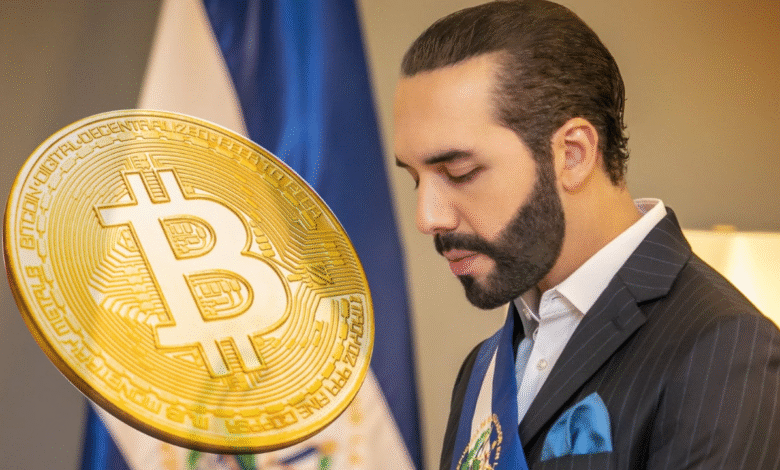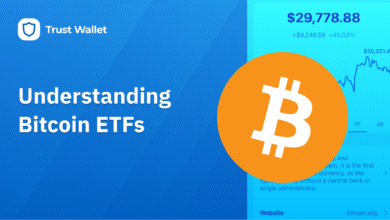El Salvador Bitcoin News: IMF Calls It Just Shuffling

In the ever-evolving world of cryptocurrency, El Salvador Bitcoin news remains at the forefront, capturing global attention as the nation navigates its bold experiment with digital currency. Recently, the International Monetary Fund (IMF) expressed its skepticism regarding El Salvador’s bitcoin strategy, suggesting that the country’s supposed accumulation of Bitcoin could merely be an intricate game of shuffling funds rather than genuine investment. This development raises important questions about El Salvador’s wider crypto policy and its implications for the regional crypto landscape, amidst rising regulations in countries like Argentina and Brazil. As Brazil imposes hefty tariffs to stabilize its economic position, enthusiasts and investors are watching closely how policies in El Salvador will impact the overall trust and functionality of the crypto market in Central America. With discussions about Bitcoin shuffling and its economic ramifications gaining prominence, the dialogue around El Salvador’s crypto journey continues to intensify.
This week’s crypto roundup highlights key updates from Central America, particularly the unique approach taken by El Salvador in embracing Bitcoin as a legal tender. The focus on Bitcoin movements and transactions may not just be about acquiring assets but rather a strategic maneuver to optimize governmental financial resources, as highlighted by recent IMF statements. The surge in discussions surrounding El Salvador crypto initiatives signals a shifting tide in how governments view digital currencies in light of global economic pressures. Moreover, with new regulatory measures emerging in Argentina and tariffs affecting Brazil’s trade, the dynamics of cryptocurrency utilization continue to evolve. Understanding the implications of these developments on El Salvador’s economic landscape is crucial as the region grapples with both innovation and regulation.
Understanding El Salvador’s Bitcoin Shuffling and Its Implications
El Salvador’s approach to Bitcoin, often described as ‘shuffling’, has raised eyebrows both domestically and internationally, especially following the IMF’s recent commentary. The country, under President Nayib Bukele’s leadership, has been vocal about its strategy to integrate Bitcoin into its economy, but the IMF’s statement suggests a nuanced view of these actions. Rather than facilitating substantial increases in Bitcoin reserves, it appears that transactions primarily involve moving Bitcoin around existing government wallets, which may imply limited long-term benefits beyond mere publicity.
This so-called shuffling has implications not just for El Salvador’s economic landscape but also for the broader cryptocurrency conversation in Latin America. As countries like Argentina grapple with crypto regulation, understanding El Salvador’s strategy becomes essential. Investors and crypto enthusiasts are left to ponder whether such a policy could successfully stabilize the economy or merely serve as an elaborate marketing scheme lacking real substance.
The Impact of IMF Insights on El Salvador’s Crypto Strategy
The IMF has frequently voiced concerns about El Salvador’s Bitcoin initiatives, particularly emphasizing the risks associated with excessive exposure to volatile assets. The organization highlighted that while El Salvador’s Bitcoin ‘shuffling’ aligns with certain program conditions set forth in their financial agreement, it does not equate to effective monetary policy. This revelation has fueled skepticism about whether the government is genuinely promoting a sustainable crypto economy or merely participating in a speculative practice to attract investment.
Moreover, the IMF’s stance also resonates with critics who argue that El Salvador’s adoption of Bitcoin may not necessarily benefit its citizens. As global economic trends fluctuate, the reliance on Bitcoin could make the country vulnerable to external shocks, further complicating its financial stability. Discussions around El Salvador’s Bitcoin policies are crucial, especially in the context of how other Latin American nations might learn from or avoid its pitfalls.
Brazil’s 50% Tariff: A Policy Shift with Crypto Consequences
The recent imposition of a 50% tariff on Brazil by the Trump Administration has significant ramifications beyond traditional trade. This move not only highlights the strained relations between the U.S. and Brazil but also raises questions about the impact on the Brazilian cryptocurrency landscape. Given that Brazil is a significant player in the Latin American cryptocurrency market, such tariffs could stifle investment and innovative development in the sector, particularly among crypto startups seeking to establish themselves in an already competitive environment.
With the crypto industry in Brazil facing potential challenges from increased tariffs, market participants are left to wonder about the long-term effects on commerce and technology adoption. In an era where cryptocurrencies are viewed as tools for circumventing inflation, Brazil’s response will be watched closely by neighboring countries, including Argentina as they push for clearer regulations on digital currencies. This example underscores how geopolitical tensions can ripple through the woven tapestry of regional crypto economies.
Exploring Argentina’s Crypto Regulation Challenges
The recent visit of U.S. lawmakers to Argentina sheds light on the complexities surrounding the country’s crypto regulation landscape. As these lawmakers engage with local authorities, like President Javier Milei, the focus remains on the urgent need for a cohesive regulatory framework that balances innovation with protection. Argentina’s unique economic challenges, including hyperinflation, increase the appeal of cryptocurrencies, yet without clear regulations, the risk of exploitation and fraud remains high.
As the country navigates its regulatory approach, lessons can be learned from El Salvador’s Bitcoin endeavors. While trying to capitalize on the interest in cryptocurrencies, Argentina must ensure that its regulations safeguard consumers while fostering a robust environment for blockchain-related innovations. The balancing act between strict governance and the potential for cryptocurrency to provide economic relief is crucial, especially in a time when financial stability is paramount for the nation.
El Salvador Bitcoin News: A Prelude to Broader Adoption in LatAm?
The latest El Salvador Bitcoin news has sparked discussions about the potential for broader cryptocurrency adoption in Latin America. Many observers posit that if El Salvador’s strategy proves successful, other nations might follow suit, seeking to leverage the benefits of blockchain technology in financial transactions. The excitement generated by this possibility invites both speculation and skepticism from financial analysts and crypto enthusiasts alike.
However, the challenges that remain are immense. The IMF’s cautionary stance serves as a reminder of the need for sustainable economic policies and thorough evaluations of crypto investments. Countries in Latin America, particularly those facing economic instability, must critically assess whether Bitcoin and other cryptocurrencies can provide viable solutions or if they are merely short-term fixes within a turbulent financial landscape.
Navigating Crypto Regulation: Can Argentina Learn from El Salvador?
As Argentina considers its stance on cryptocurrency regulation, there is much to be gleaned from El Salvador’s recent experiences. The ongoing dialogue about the effectiveness and ramifications of crypto policies can inform Argentina’s approach as it grapples with its unique socioeconomic issues. While El Salvador’s Bitcoin experiment has positioned it at the forefront of digital currency discussions, its implementation and governance strategies are fraught with lessons that other nations must address to prevent missteps.
This juxtaposition highlights the necessity for Argentina to create a regulatory environment that not only encourages innovation but also prioritizes consumer and investor protection. As the country’s lawmakers discuss potential regulatory frameworks, the focus should remain on sustainable practices that can harness the benefits of cryptocurrencies without succumbing to their inherent volatility. Thus, understanding how El Salvador manages these challenges will be pivotal in shaping Argentina’s regulatory landscape.
The Role of International Organizations in Shaping Crypto Policies
International organizations like the IMF play a crucial role in shaping the discourse around cryptocurrency policies, particularly in regions with emerging markets like Latin America. Their insights into nations like El Salvador provide benchmarks for assessing the feasibility and risks associated with such digital asset strategies. As countries undergo transformation in their monetary policies, the influence of these organizations cannot be overstated, as they often hold sway over crucial funding agreements essential for economic stability.
With ongoing discussions surrounding crypto regulation in places like Argentina and Brazil, international organizations may need to adapt their approaches to better suit the evolving landscape of digital currencies. By offering tailored guidance and strategic frameworks, these entities can help countries navigate the intricate challenges of adopting cryptocurrencies responsibly, aiding in the establishment of a balanced, beneficial environment that fosters growth while mitigating risk.
Comparative Analysis: How El Salvador’s Bitcoin Adoption Stands Against Regional Trends
El Salvador’s unilateral adoption of Bitcoin has spurred various reactions throughout Latin America, prompting a deeper examination of regional trends in cryptocurrency acceptance. Unlike many of its neighbors, which have opted for cautious approaches to digital assets, El Salvador’s bold move invites comparison and analysis of how such decision-making might influence economic outcomes. Countries such as Argentina and Brazil are observing these developments closely, as they seek to understand the potential benefits and risks associated with similar ventures.
This comparative perspective highlights significant variances in regulatory readiness, economic environment, and public reception of cryptocurrencies. While Bitcoin adoption could position El Salvador as a leader in digital finance, the responses from other nations might well dictate the pace and trajectory of regional integration into the global crypto economy. The subsequent decisions made in these neighboring countries will be essential in determining whether El Salvador’s model will be emulated or avoided.
Geopolitical Implications of Cryptocurrency Adoption in Latin America
The geopolitical implications of cryptocurrency adoption in Latin America are becoming increasingly pronounced, especially in light of El Salvador’s stance on Bitcoin. As regional leaders observe El Salvador’s approach amidst shifting global financial dynamics, questions arise regarding how digital currencies might alter trade relationships and influence political alliances. Cryptocurrencies have the potential to empower nations economically, but they also present challenges that can exacerbate diplomatic tensions, particularly with influential economies like the United States.
In a context where trade balances and tariffs are at the forefront, countries must strategically navigate the intersection of cryptocurrency adoption and foreign policy. Brazil’s recent tariff imposition showcased how national security concerns are tightly intertwined with economic decisions. As Latin American nations contemplate adopting digital currencies, understanding the broader geopolitical landscape will be crucial to fostering sustainable economic growth while maintaining stable international relations.
Frequently Asked Questions
What does the IMF say about El Salvador’s Bitcoin purchasing strategy?
The IMF recently suggested that El Salvador is primarily engaging in Bitcoin shuffling rather than outright accumulation. According to IMF Communications Director Julie Kozack, the movements of Bitcoin among various government-owned wallets do not equate to increasing their total holdings, following their $1.4 billion credit agreement.
How does El Salvador’s Bitcoin activity impact its relationship with the IMF?
El Salvador’s Bitcoin strategy, particularly its bitcoin shuffling practices, is under scrutiny from the IMF. The IMF maintains that while El Salvador may be aligned with program conditionality, the country appears to be reallocating existing Bitcoin rather than acquiring more, which influences their financial scrutiny and relationship.
What are the implications of Brazil’s 50% tariff on crypto trading with El Salvador?
Brazil’s recent 50% tariff, imposed by the Trump administration, could complicate crypto trading relationships in Latin America. Although it directly affects Brazil, the tariff may have downstream impacts on how El Salvador interacts with Brazilian crypto markets and reassesses its strategies within the regional crypto framework.
How is the regulatory environment for Bitcoin in El Salvador compared to Argentina?
While El Salvador is focused on Bitcoin integration as a legal tender, the regulatory environment in Argentina is evolving. Recent visits by U.S. lawmakers highlight Argentina’s approach to crypto regulation, which might differ from El Salvador’s Bitcoin-centric model, showcasing the diverse regulatory landscape across Latin America.
What challenges does El Salvador face in its Bitcoin integration efforts?
El Salvador faces challenges such as skepticism from international financial institutions like the IMF, concerns about the effectiveness of its Bitcoin strategy, and the complexities of regulation and public acceptance. The ongoing scrutiny of its bitcoin shuffling practices by the IMF could hinder its broader crypto goals.
What was the purpose of the U.S. lawmakers’ trip to Argentina regarding Bitcoin regulation?
The U.S. lawmakers’ visit to Argentina was aimed at gaining insights into the local crypto ecosystem. They met with key officials, such as President Javier Milei, to discuss ongoing challenges in cryptocurrency regulation, revealing contrasts with El Salvador’s Bitcoin-focused approach to integrating crypto into its economy.
| Key Points | Details |
|---|---|
| El Salvador’s Bitcoin Strategy | IMF suggests that El Salvador’s bitcoin movements are merely transfers within government-owned wallets without actual accumulation. |
| IMF Statements | Julie Kozack, IMF Communications Director, indicated that the activities align with program conditionality. |
| Tariffs on Brazil and Canada | Trump administers a 50% tariff on Brazil and a 35% tariff on Canada, citing national security concerns related to political actions. |
| US Congressional Visit to Argentina | U.S. lawmakers meet with Argentina’s President to discuss local crypto regulations and market conditions. |
Summary
El Salvador Bitcoin news continues to generate significant attention as the country faces scrutiny from the International Monetary Fund (IMF) regarding its bitcoin transactions. Despite claims of purchasing more bitcoin, IMF officials emphasize that these actions are more about reallocating existing assets rather than accumulating wealth. This, combined with external tariffs imposed by the U.S. on Brazil, creates a complex landscape for cryptocurrencies in the region. As U.S. lawmakers explore legislative frameworks for local crypto ecosystems, the future of bitcoin and crypto regulations in El Salvador and Latin America remains a topic of keen interest.




